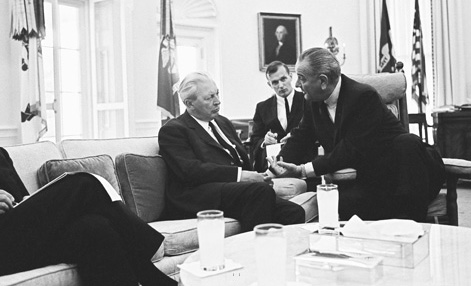U.S. Alliances and Nuclear Reversal
In his new book, Jonas Schneider tackles a question that is of great interest both to scholars of nuclear proliferation and to practitioners of nonproliferation diplomacy: Why do some political leaders of U.S. allies agree to abandon their nation’s nuclear weapons activities, while others – who are often members of the same allied government and sometimes even of the same political party – steadfastly reject such a course reversal?

Our existing stock of theories does not fare well in accounting for this important variation in leaders’ attitudes. To solve this puzzle, Schneider develops an innovative theory that draws on the individual status conceptions of allied political leaders. Subsequently, the author undertakes to test his theory using four thoroughly researched case studies, and he derives important lessons for international nonproliferation diplomacy toward the Middle East and Northeast Asia.
external pagePublisher's Website
